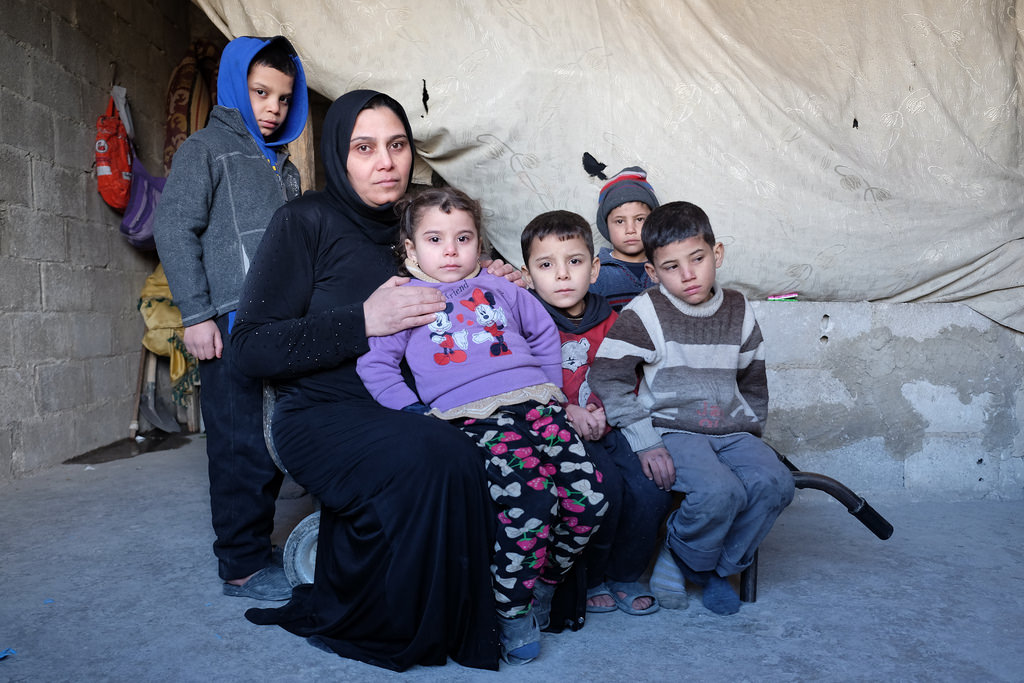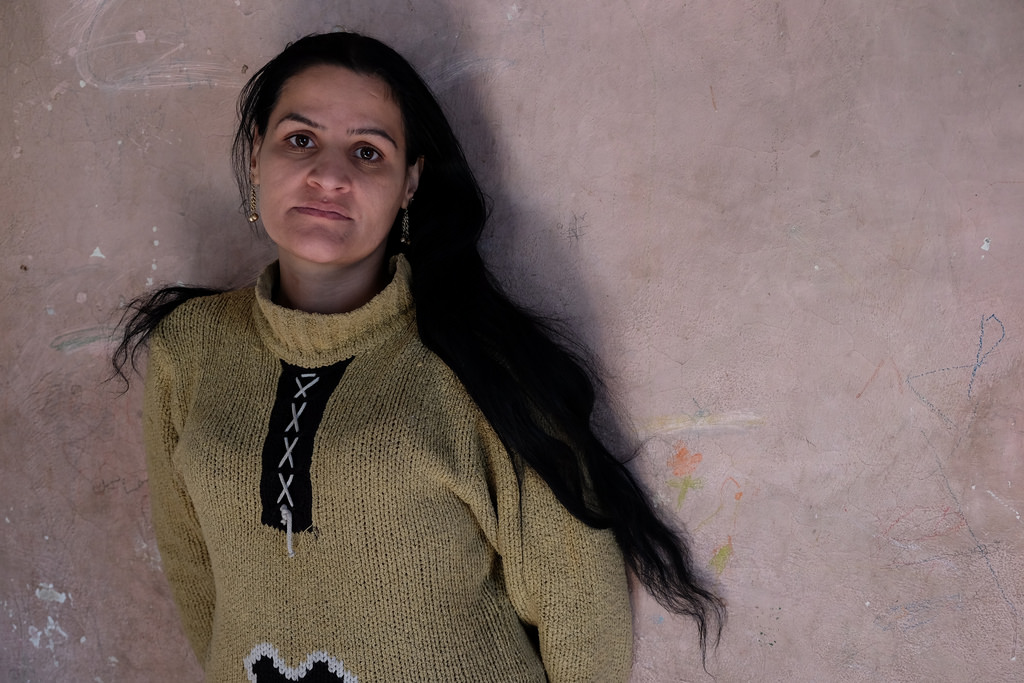Fleeing ISIS
“We travelled at night. During the day we hid in trees. There were snipers everywhere,” she said. “When we arrived in Damascus, it was like Eid [the Muslim celebration].”
Badia Mehmid
“We travelled at night. During the day we hid in trees. There were snipers everywhere,” she said. “When we arrived in Damascus, it was like Eid [the Muslim celebration].”
Badia Mehmid
“If a woman wore green or red, they would attack her,” said Badia Mehmid, who lived for months under Islamic State (ISIS or Daech) when the fanatics took control of her suburb in Aleppo. “If she was beautiful, they would rape her and use her as a slave. Our neighbour didn’t come back. The husband killed himself.”
The terrorists controlled everything that there was to buy, including food and household goods. Prices became very high. The pressure became unbearable for the mother of nine children.
“They forced children to go to their schools. They would brainwash them. They taught that if they saw their mother smoking, they must kill her,” she said. “I feared I would lose my children.”
They forced children to go to their schools. They would brainwash them. They taught that if they saw their mother smoking, they must kill her,” she said. “I feared I would lose my children.

Badia Mehmid, 35. Nine children, aged 18 to 3 years.
Selling all they had, they paid smugglers to help them escape. “We travelled at night. During the day we hid in trees. There were snipers everywhere,” she said. “When we arrived in Damascus, it was like Eid [the Muslim celebration].”
The family has been living in an unfinished apartment of bare concrete, breeze blocks and open windows. The freezing wind cuts through it. “We try to block the windows, but it’s never enough,” she said.
If a woman wore green or red, they would attack her
Caritas helps Badia with cash vouchers. “It’s very expensive feeding and sending nine children to school,” she said. “My son refused to go to school because all he had to wear was slippers. They’re shy wearing rags. The money helps us to buy what we need – warm clothes, food and books for the children.”
To make ends meet the children work in the streets cleaning cars or washing stairs in apartment buildings. They earn about 600 Syrian pounds a day. They also find old bread and sell it. “It’s difficult seeing them work, but we have no choice if we want to eat,” said Badia.
Sometimes it is hard to keep going, but her children give her strength. “After eight boys, it was wonderful to have a daughter,” she said. “She will give me hugs and kisses when I need them.”
Miriam Mohammed was undergoing dialysis in Raqqa when ISIS seized the city. “After ISIS took over, there was no medicine, no doctors, nothing,” she said. Without treatment, she would die.
“The ISIS soldiers let me go because of my health problems ,” she said, but she had to leave her six children behind to come to Damascus. “It’s been three years. I dream of my children. They are living by themselves. They don’t have water or clothes. People give them bread to survive,” she said.
I don’t like to know that she is alone. She is depressed and has health problems. I always try to be beside her and to comfort her.
When Miriam came to Damascus she was taken in by her best friend Rabba Lissa, who had fled Raqqa before ISIS had cut the roads. They live in next door apartments in a half-constructed building.
“I can’t be happy knowing Miriam is suffering,” said Rabba. “I always talk to her to give her some relief. I encourage her that the road to Raqqa will reopen and that she will get back her children.”
Both receive cash vouchers from Caritas. Miriam’s apartment is bare concrete, open windows and just a mattress and blankets inside. Rabba has covered her own place in gold fabric, flowers and carpets. Making a nice home has been a release from the daily suffering.
“When we came here it was awful . I started working on it to make it more comfortable. I bought the fabric piece by piece by saving up,” she said. “I’m usually cheerful. As long as my children are ok. You can lose property, but can always get that back.”

Fadwa Taleb shows the bullet hole splatter across her walls. She came to this new apartment after fleeing fighting in another part of Damascus. “The shelling was very heavy. There was many mortars and many bullets. People were running to escape,” she said.
“We came here. The house was already damaged. We fixed what we could and moved in. We couldn’t take anything with us, just the clothes we are wearing. We are freezing under our blankets. We have no means of heating the house.”
Fadwa has buried two sons killed in the war. “I hope nobody will pass through what I have passed through. When I see my orphaned grandchildren, I’m really sad,” she said. She lives next to her widowed daughter in law Abeer Al Hasan and her grandchildren Josef and Mary.
“What do you say to you children: Your father is dead, they have buried him,” said Abeer.
“We depended on him for everything, for food and rent. I want to offer them the best that I can, but there are many days without even a piece of bread. Tomorrow I tell the children it will be better. Tomorrow I will buy you a sweet.”
Caritas provides the family with cash vouchers they use for food and clothes. For Abeer, leaving Syria isn’t an option. “I will never leave Syria. I grew up here. I ate from the food here. I drank from the water. I know the streets. I’m full of hope that things can get better like before the war.”